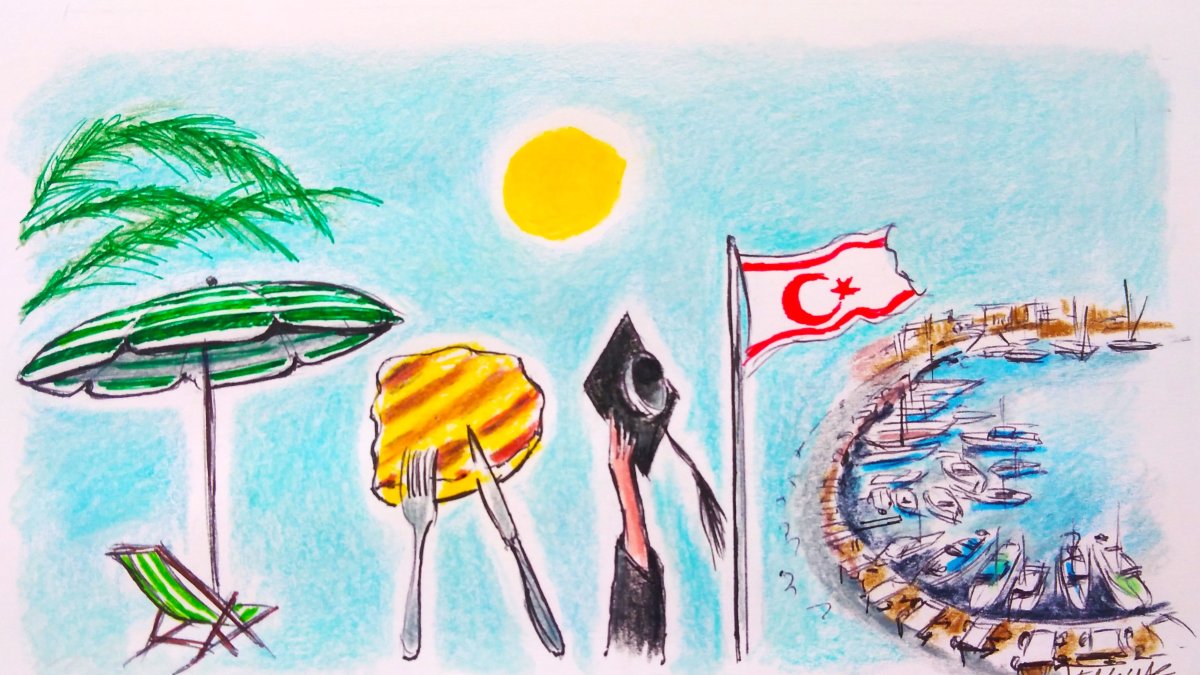In the international system, “recognition” is not only a determinant of a state’s diplomatic existence but also a critical factor shaping its economic capacity. Having maintained its existence for 41 years, yet being recognized solely by Türkiye, the Turkish Republic of Northern Cyprus (TRNC) remains in a status outside the frameworks of international law and diplomatic norms. This isolation has also resulted in numerous concrete economic restrictions.
What is the cost of non-recognition for a state that imposes practical isolation, limiting access to global financing, trade and transportation networks? In the TRNC, the lack of recognition prevents direct flights, excludes banks from the SWIFT system, and restricts access to institutions such as the IMF and World Bank. Restrictions in global cultural and educational platforms further reduce economic visibility and integration.
Despite the shadow of this isolation, the TRNC economy has managed to build itself over the years through its internal resources and structural economic integration with Türkiye. This reality demonstrates that states rely not only on diplomatic recognition but also on their ability to adapt economically. A few words should also be said about the TRNC’s unique economic resilience, which has enabled it to endure despite its limited external connections, as well as the vulnerabilities and opportunities it may face going forward. Recognition is a political process; however, economics often operates beyond the boundaries of politics.
Components of the TRNC economy
Despite the challenges, the economy of the TRNC is built on a dynamic structure centered around specific sectors. The TRNC’s gross domestic product (GDP) is approximately $5 billion, with higher education, tourism, construction and services forming the backbone of the economy.
The higher education sector, in particular, contributes significantly to foreign currency inflows through over 100,000 international students primarily from Africa, the Middle East and Central Asia. Universities not only generate direct employment but also support ancillary service industries such as accommodation, transportation and retail. Tourism represents another crucial source of income for the TRNC, with a developed sun, sea and sand tourism segment complemented by casino and entertainment tourism. The construction sector is revitalized mainly through real estate purchases by foreigners, thereby further contributing to economic growth.
However, despite its outward orientation, the TRNC’s economy has only been able to develop comprehensive trade, financial and infrastructural ties with Türkiye, facing significant restrictions in accessing international markets directly. The use of the Turkish lira as its currency links the TRNC’s economic stability closely to Türkiye’s macroeconomic performance.
Embargo, isolation, limited access
The lack of international recognition of the TRNC results in a series of tangible restrictions and economic isolation. One of the most critical limitations is the absence of direct flights and the closed status of the ports. Since Ercan Airport is not recognized under international aviation standards, it remains closed to direct foreign flights, an issue that restricts the tourism sector and obstructs commercial activities. Similarly, TRNC ports are open only to vessels arriving from Türkiye, effectively blocking the country’s direct access to global maritime trade.
In the financial sector, the TRNC faces significant challenges due to its exclusion from the SWIFT system, which hinders international banking transactions. Being outside global credit rating agencies and insurance networks further prevents the TRNC from accessing international financial markets. This isolation makes it difficult to attract investment and significantly raises the cost of trade.
Moreover, the TRNC faces restrictions in participating in international platforms in sports, culture and commerce. These practices, often described as a form of “soft embargo,” diminish the country’s global visibility and weaken its economic integration. As a result, TRNC-made products struggle to compete in international markets.
Advantages of the gray zone
Despite facing international isolation and numerous restrictions, the TRNC has managed to sustain its economy through innovative and resilient structures. One of the most prominent sectors contributing to this resilience is higher education. Approximately 100,000 international students from Africa, Central Asia and other regions generate a significant portion of the TRNC’s foreign currency inflows. These students also invigorate related sectors such as accommodation, transportation and local consumption.
Additionally, the legal “gray zones” established by the TRNC in areas such as information technology, fintech and online services provide flexibility for entrepreneurs. These digital and innovation-driven industries not only inject dynamism into the TRNC’s economic structure but also help mitigate the impact of international restrictions to some extent.
Furthermore, the rise of local entrepreneurship and the increasing economic participation of the young population have contributed to the economy’s resilience. Economic harmonization policies with Türkiye not only support infrastructure investments but also aid development through social and economic reforms.
Dependence or protective integration?
The sustainability of the TRNC economy is largely contingent upon its structural relationship with Türkiye. Türkiye provides the TRNC with billions of Turkish lira annually in direct financial aid, infrastructure investment and energy support. Essential services such as electricity and water are supplied from Türkiye, while the Türkiye-TRNC Economic and Financial Cooperation Protocols support public sector reforms and social services.
Although Türkiye’s financial assistance forms a critical backbone of the TRNC economy, it also increases the island’s economic dependence. Fluctuations in the Turkish economy have a direct impact on inflation, exchange rates and price stability in the TRNC. On the other hand, integration with Türkiye serves as a buffer against international isolation, enabling the continuity of economic operations. This structural relationship enhances the TRNC’s financial resilience, yet it also limits its long-term potential to develop as an independent and globally integrated economy.
While political recognition is not a prerequisite for economic sustainability, it remains one of the most significant obstacles to open and competitive development. The case of the TRNC stands as concrete evidence that a state can generate economic “reality” even without formal international recognition.
Unrecognized states are typically discussed in diplomatic and military contexts, yet the TRNC experience is also noteworthy from an economic standpoint. It offers a compelling example of how actors marginalized by the international system can survive, and even thrive, through internal resilience and external support.

